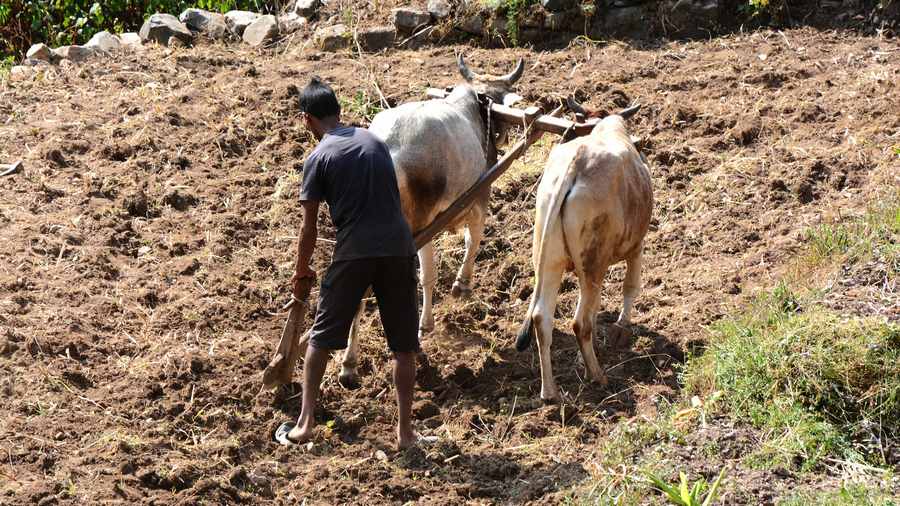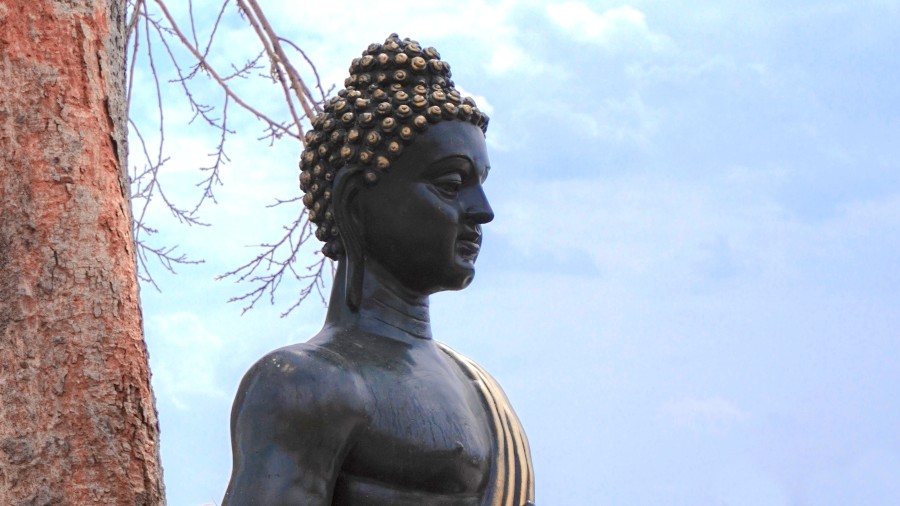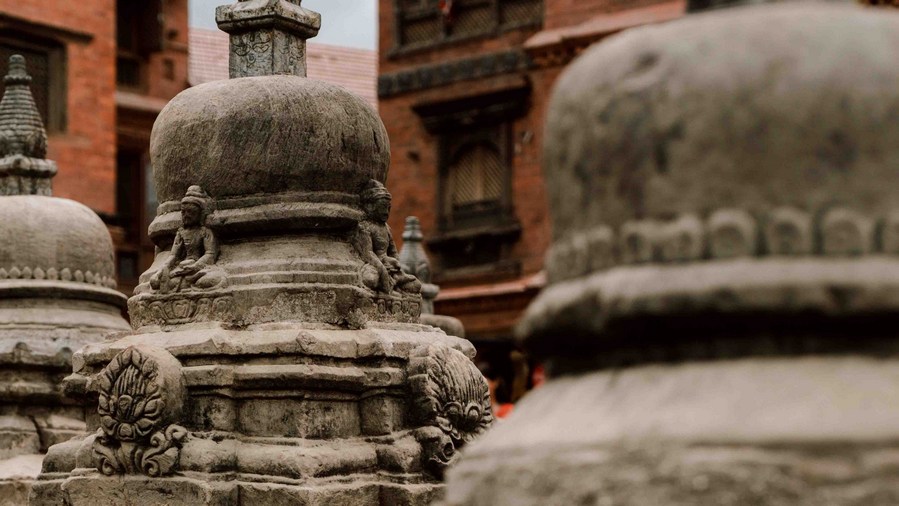…When Dhanañjāni had finished breakfast he went to Sāriputta and exchanged greetings with him. When the greetings and polite conversation were over, he sat down to one side. Sāriputta said to him, “I hope you’re diligent, Dhanañjāni?”
“How can I possibly be diligent, Master Sāriputta? I have to provide for my mother and father, my wives and children, and my bondservants and workers. And I have to make the proper offerings to friends and colleagues, relatives and kin, guests, ancestors, deities, and king. And then this body must also be fattened and built up.”
“What do you think, Dhanañjāni? Suppose someone was to behave in an unprincipled and unjust way for the sake of their parents. Because of this the wardens of hell would drag them to hell. Could they get out of being dragged to hell by pleading that they had acted for the sake of their parents? Or could their parents save them by pleading that the acts had been done for their sake?”
“No, Master Sāriputta. Rather, even as they were wailing the wardens of hell would cast them down into hell.”
“What do you think, Dhanañjāni? Suppose someone was to behave in an unprincipled and unjust way for the sake of their wives and children … bondservants and workers … friends and colleagues … relatives and kin … guests … ancestors … deities … king … fattening and building up their body. Because of this the wardens of hell would drag them to hell. Could they get out of being dragged to hell by pleading that they had acted for the sake of fattening and building up their body? Or could anyone else save them by pleading that the acts had been done for that reason?”
“No, Master Sāriputta. Rather, even as they were wailing the wardens of hell would cast them down into hell.”
“Who do you think is better, Dhanañjāni? Someone who, for the sake of their parents, behaves in an unprincipled and unjust manner, or someone who behaves in a principled and just manner?”
“Someone who behaves in a principled and just manner for the sake of their parents. For principled and moral conduct is better than unprincipled and immoral conduct.”
“Dhanañjāni, there are other livelihoods that are both profitable and legitimate. By means of these it’s possible to provide for your parents, avoid bad deeds, and practice the path of goodness.
Who do you think is better, Dhanañjāni? Someone who, for the sake of their wives and children … bondservants and workers … friends and colleagues … relatives and kin … guests … ancestors … deities … king … fattening and building up their body, behaves in an unprincipled and unjust manner, or someone who behaves in a principled and just manner?”
“Someone who behaves in a principled and just manner. For principled and moral conduct is better than unprincipled and immoral conduct.”
“Dhanañjāni, there are other livelihoods that are both profitable and legitimate. By means of these it’s possible to fatten and build up your body, avoid bad deeds, and practice the path of goodness.”
Then Dhanañjāni the brahmin, having approved and agreed with what Venerable Sāriputta said, got up from his seat and left.…
Read the entire translation of Majjhima Nikāya 97 Dhanañjānisutta: With Dhanañjāni by Bhikkhu Sujato on SuttaCentral.net.
Or read a different translation on DhammaTalks.org. Or listen on PaliAudio.com or SC-Voice.net. Or explore the Pali on DigitalPaliReader.online.
Or read a translation in Bengali, Deutsch, Français, हिन्दी, Magyar, Indonesian, Italiano, မြန်မာဘာသာ, Norsk, Português, ру́сский язы́к, සිංහල, Slovenščina, Srpski, ไทย, Tiếng Việt, or 汉语. Learn how to find your language.








